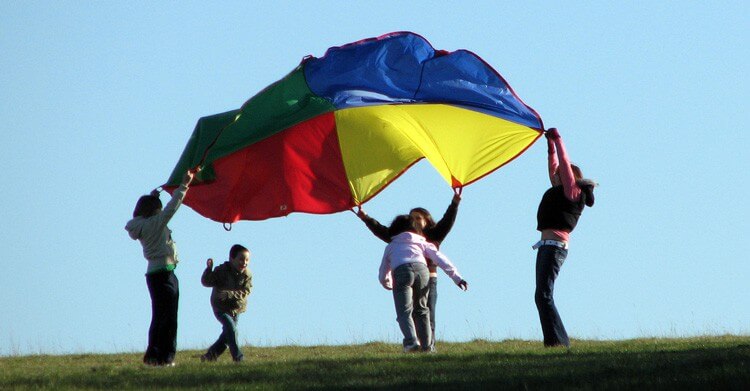The purpose of the Get HyPE column is to discuss topics that will excite and inspire the physical education community. My goal is to encourage you to think about or try something new every month. The name of the column also has a secondary meaning. It includes the name my students call me, “G-H,” and the abbreviation for physical education, “PE.”

I recently read a position statement published by the National Council of Teachers of English (NCTE) titled “Formative Assessment That Truly Informs Instruction.” The following statements are excerpts from the piece:
- “…true formative assessment is assessment that is informing.”
- “Teachers are very aware that…checks for understanding are what allow them to teach better and improve student achievement.”
- “…authentic formative assessment is connected directly to the teaching and learning occurring at that moment.”
- “…assessments provide information the teacher can use to better understand her students and to then support them in taking the next steps in their learning.”
I love using a variety of formative assessments in my classes. I scribble anecdotes on blank paper, ask my students to doodle on Post-its, and place check marks on a chart. The NCTE categorizes formative assessments into three types, “on-the-fly” (those that happen during a lesson), “planned-for-interaction” (those decided before instruction), and “curriculum-embedded” (embedded in the curriculum and used to gather data at significant points during the learning process). Some of my favorite assessments are the impromptu checks for understanding I come up with during a lesson. They are truly created “on-the-fly.”
This fall, I implemented a Sport Ed World Cup soccer unit in my classes. I divided my 7th grade class into four teams of 4-5 students each. During one of the last games of the season, Team Australia only had two players. Two students were absent from school and the third was stuck on the sidelines in a walking boot. I asked the girls if I could join them. They were thrilled. Little did I know that volunteering to be their teammate would completely transform my assessment thinking and practice.
Prior to playing, I thought my new teammates were just “okay” at playing soccer, still learning how to proficiently dribble down the field, move the ball away from defenders, and shoot accurately on goal. My observations couldn’t have been further from the truth. My students moved to open space, made lead passes, dribbled around defenders, ran back to play defense, talked throughout the games, and coached each other. Playing with my students gave me a completely different perspective of their skills, their ability to communicate with their peers, and their enthusiasm for the game. I was struck by the thought, “Can playing in class be a valid way to assess my students?”
Fast forward a few weeks to the same class, this time playing small-sided, modified volleyball games in the gym. A team was short a player and the girls asked me to play. Again, I couldn’t believe what I heard and saw. Students who were typically timid on the court were calling for the ball, accepting passes I sent their way, smiling, and serving successfully. I got a closer look at their positioning, movement on the court, and placement of their hands. I wondered, “Does playing in class make me a better observer?”
According to Scholastic, “information observation (“kid watching”) of students working alone, in groups, or during whole-group instructioncan give you valuable information about students’ progress, understanding, strengths and challenges, cooperation, study habits, and attitude.” Is it possible that occasionally joining our students during an activity allows us to observe them more effectively?
Playing in class has changed the way I see my students. It’s changed the way I interact with my students. It’s changed the way I perceive what they know, understand, and can do.
Okay, it’s time to Get HyPE.
I would like to challenge you to PLAY in class. See if your observations change, too!
Please feel free to start a conversation about this topic with me on Twitter @GHSaysRockChalk.
Sources:
- Formative Assessment That Truly Informs Instruction. (2013, October 21). Retrieved November 17, 2015, fromhttp://www.ncte.org/library/NCTEFiles/Resources/Positions/formative-assessment_single.pdf
- Observing Students | Scholastic.com. (n.d.). Retrieved November 17, 2015, from http://www.scholastic.com/teachers/article/observing-students
